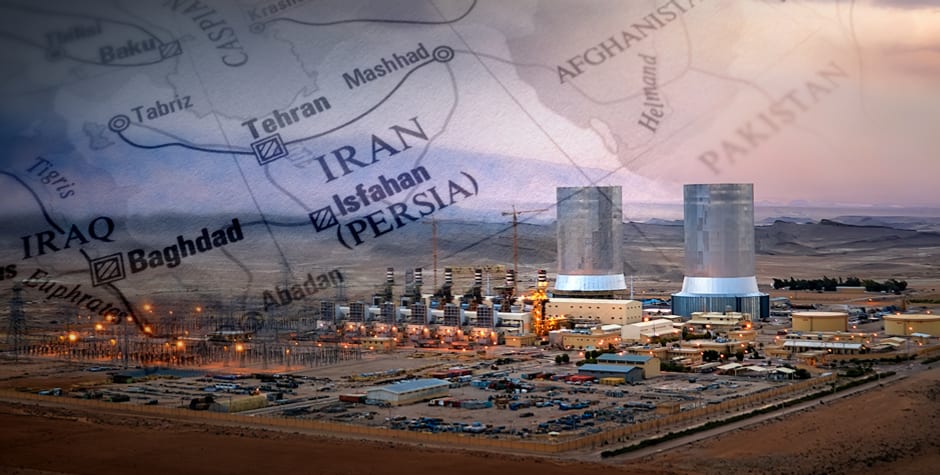The Controversial Iran Nuclear Deal: An Update – What You Need To Know
As the ACLJ pointed out recently, the flawed Iran Nuclear Deal (JCPOA) is still in the works with the Biden Administration. Even though the International Atomic Energy Agency (IAEA), tasked by the United Nations to both observe and negotiate with Iran and its nuclear program, has categorically stated that Iran is being dishonest and uncooperative—the Biden Administration still believes in the JCPOA and very much wants to reenter the agreement.
Just in the last few days, Robert Malley, President Biden’s special envoy for negotiations with Iran for the JCPOA, testified before the U.S. Congress. He defended the Biden Administration’s efforts to return to the Iran nuclear deal. Malley stated the Administration will continue to press for an agreement with Iran as long as it assesses that the non-proliferation benefits of the JCPOA are worth the sanctions relief that the U.S. is prepared to offer the world’s leading state sponsor of terrorism. He did admit that there is no deal presently and the possibility for reaching a deal are “tenuous at best.”
The Trump Administration withdrew from the agreement in 2018 because it did not prevent Iran from acquiring a nuclear weapon—but merely delayed it for approximately a decade. Additionally, the U.S. discovered that even in 2018, Iran was violating the deal and blocking some inspections. As we pointed out, all Iranian military sites are off limits to international inspections under the original deal and still are off limits in the new proposals. President Trump also designated the Islamic Revolutionary Guard Corps (IRGC) as a terrorist organization (which they are) and sanctioned the group.
Iran now is demanding that the IRGC be removed from the Foreign Terrorist Organization (FTO) list. In the face of intense advocacy, including an ACLJ Freedom of Information Act (FOIA) request, the Biden Administration thus far appears to be holding firm in refusing to do that. The IRGC is charged with Iran’s exportation of terror and funds and trains its terror proxy groups. The IRGC has been directly involved in the deaths of over 600 U.S. service members and numerous civilians.
The Biden Administration has maintained it is willing to restore the Iran nuclear deal through “mutual compliance” and has guaranteed it will remove sanctions if Iran goes back to the original limitations placed on Iran in the agreement. That is naïve and unrealistic. For example, the original agreement limited Iran to uranium enriched at no more than 3.76%, which is what is needed for civilian use. But Iran now has uranium enriched at 60%. They have sped up their nuclear research and development. The breakout time for Iran to build their first weapon has gone from years to several months. Of course, they cannot, and will not, unlearn the progress they made since 2018 on building a nuclear weapon. They are still blocking IAEA inspections. How can the Biden Administration say that it is still willing to lift sanctions if Iran will go back to the terms of the original agreement?
The Washington Post reports that Robert Malley insisted in his testimony that diplomacy remains the best option for national security as it pertains to Iran’s nuclear weapons program. He said, “The military option cannot resolve this issue . . . the only option here is a diplomatic one.” No one wants a war with Iran. (By the way, the military option is a much more feasible option while Iran does not have a nuclear weapon. Once they have a weapon, our military options diminish.) There are other alternatives to addressing the threat from Iran other than military force. The crippling sanctions on Iran have worked. The Biden Administration eased some of these. Why? The Administration is prepared to lift even more sanctions. And even with the severe sanctions instituted by the Trump Administration, more were possible and planned. Crippling sanctions had crushed the Iranian economy, brought freedom-loving Iranians to demonstrations in the streets, and denied Iran much-needed funds for research and development and their support of groups like Hamas and Hezbollah.
Mr. Malley’s congressional testimony was followed by that of Mark Dubowitz of the Foundation for the Defense of Democracies. He reminded the Members of Congress that the nuclear restrictions on Iran would stop in a handful of years. He also stated that the removal of sanctions would give Iran $275 billion in sanctions relief in the first year of a new agreement, and another $800 billion in five years. In disagreeing with Dubowitz’s testimony, Robert Malley incredibly countered that lifting sanctions would give Iran “about $5 billion a month at current prices”—as if that amount of relief was insignificant compared to what Dubowitz stated.
Iran does not want an agreement with the IAEA or the United States. Let’s be real: Iran wants nuclear weapons. There can be no compromise or easing of pressure on Iran by the United States. Our own national security, and that of the entire Middle East, hangs on the decisions and actions of President Biden and his team. As previous Presidents and Israel have declared: Iran must never be allowed to possess a nuclear weapon. As we have stated here before: We cannot let the world’s most dangerous country have the world’s most dangerous weapon.
